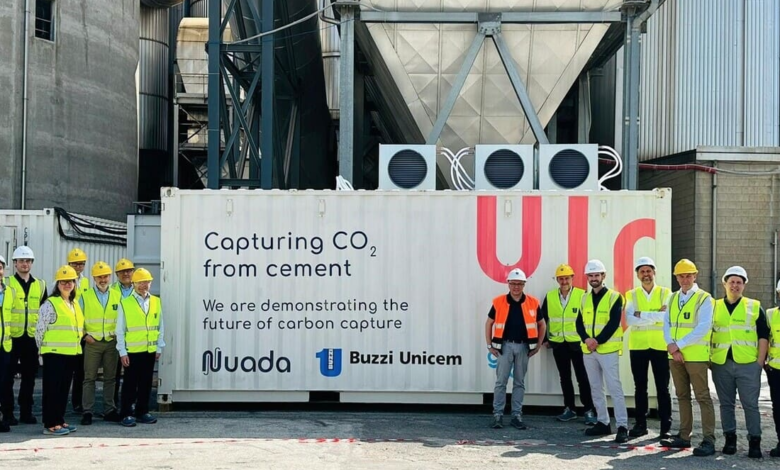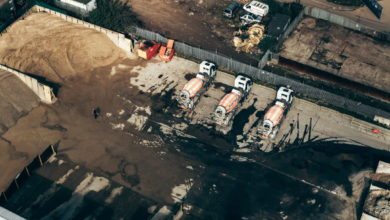In Italy, 2 generation CCS test to decarbonize cement industry

Project to decarbonize cement industry supported by GCCA
One of the most advanced CO2 capture technologies for industrial plants arrives in Italy. And it helps to decarbonize the cement industry by avoiding 1 ton of CO2 emissions per day. The pilot plant, already operational, is located at the Buzzi site in Monselice, in the province of Padua, and is the result of the partnership between the Italian company and the British Nuada.
“We are implementing the most energy-efficient carbon capture technology developed to date, a solution that redefines the decarbonization landscape for hard-to-break sectors like cement,” remarks Conor Hamill, co-CEO of Nuada.
CCS at the forefront of decarbonizing the cement industry
What are the innovations of the CCS technology developed by Nuada and calibrated to decarbonize the cement industry? Its CO2 capture solution combines advanced solid adsorbents, and metal-organic frameworks (metal-organic frameworks), with a vacuum oscillating pressure (VPSA) adsorption process. In this way, the system – powered exclusively by electricity and not linked to the use of toxic solvents – separates CO2 from industrial exhaust gases using pressure instead of heat.
An approach that promises to facilitate the adoption of CCS in the industry bypassing the critical issues related to energy consumption, costs and integration in production processes that characterize traditional solutions. According to Nuada, it would reduce the energy consumption of the process by 80%. That smear on the average operating life of a plant could translate into savings in the order of 1 billion dollars. In addition, the technology is modular and can be installed incrementally.
“This plant demonstrates our innovative capture system’s robustness, scalability and revolutionary benefits. Together with Buzzi, we are demonstrating the future of carbon capture in cement,” comments Jose Casaban, co-CEO of Nuada.
The Global Concrete and Cement Association (GCCA) supported the project and was initiated through GCCA’s Innovandi Open Challenge program. This initiative promotes collaboration between leading cement producers and suppliers of innovative technologies to decarbonize cement production. This sector generates about 7% of global emissions.





